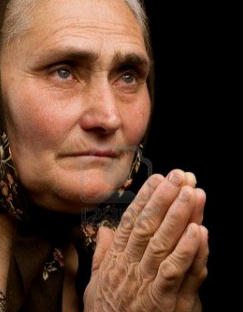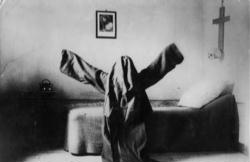
One of my great joys as
a Catholic priest is making visits to nursing facilities. The beauty,
simplicity, wisdom and dignity of those who are advanced in years is a source
of real encouragement to me in my priestly ministry. In 1999 the venerable Pope
John Paul II wrote a beautiful letter to the Elderly. In it he wrote these
words:
“The Christian
community can receive much from the serene presence of older people. I think
first of all in terms of evangelization: its effectiveness does not depend
principally on technical expertise. In how many families are grandchildren
taught the rudiments of the faith by their grandparents! …How many people find
understanding and comfort from elderly people who may be lonely or ill and yet
are able to instill courage by their loving advice, their silent prayers, or
their witness of suffering borne with patient acceptance.”
Pope John Paul II lived
those autumn years of his life of service as a prophetic witness of the love of
God and the beauty of the fullness of Christian life. He understood, as
Christians have for millennia, that death is not an end but an entry into the
fullness of life. He never ceased to share His wisdom and love for the Lord, in
both word and deed. He died the way he lived, revealing the love of God to a
world hungering to find Him.
My mother lives in a
Franciscan home in western New York. Her faith is an inspiration to me. Often
when I visit her I give the chaplain the morning off and celebrate the Holy Mass
for the senior community. I then bring communion to my mother and others who
cannot regularly attend. Those are some of my favorite times as a priest. Age
brings simplicity and clears away the underbrush that so often impedes us in
walking this journey of life.
In my home parish I
celebrate the Mass and offer the Sacrament of Reconciliation at a nearby
nursing home regularly. This weekend I visited a new resident and gave her the
Sacrament of the Anointing of the Sick. We will call her “Joy” (not her real
name), but an appropriate name for the gift she brought to me. Joy is a humble,
quiet Grandma of seven. She is a peaceful soul – she also has advanced stage
cancer and expects to die soon. After some pleasant conversation about
ourselves, I asked her about her reception of the sacraments – whether she
received Communion, was Confirmed and where she was baptized. “Oh, Father,” she
glanced up at me from her wheelchair, “I only became a Catholic very recently.”
I was delighted, after
all, at six years I consider myself a recent Catholic too. I came into the full
communion of the Catholic Church from the Anglican Christian tradition. She
went on, “I was just confirmed five weeks ago!” She pointed to a picture of
herself next to a young priest whom I know, and beside the font.
I asked her how that
was. She told me she was raised in a Baptist family in the south. “They were very
anti-Catholic” drawing out the v-e-r-y. “I met my husband who was Catholic, in
the Air Force, and we married. My parents weren’t happy, but eventually they
accepted us. For their sake I didn’t join the Church, but we raised our five
children Catholic. I made sure we never missed Mass” she was emphatic in that
last detail.
I thought to myself,
how wonderful. For her husband and their children she set aside her own beliefs
and tradition, obeying the Church and preserving unity in their home. Joy went
on, “Then my husband died, and I watched my grandchildren raised Catholic. I
thought to myself, ‘It’s time to become Catholic’ I wanted to be sure I was
with them when I died.” She then told me her only surviving sister recently
called her and told her, ‘I wish I had become Catholic, so that I could be
assured I was saved.” “Why do you think she said that?” Joy asked.
I told her that as
Catholics, we have assurance that the way to Heaven, to eternal communion with
the Lord, is opened before us in the Word of God (The Gospel), the Truth as it
is taught by the Church, and in the Sacraments. The path to salvation begins
with our Baptism, is established in Confirmation, charted by the Sacraments of
Reconciliation and Anointing, marriage and/or Holy Orders and increased by our
ongoing reception of the Holy Eucharist. Because we have these markers, or sign
posts of salvation, we can be assured, if we follow the path marked out for us
by the Church, that we will reach the ultimate destination of Perpetual Light
and Eternal Rest.
Catholics have
unlimited help in getting there – through the prayers of the Saints, the
ministry of angels, the guidance of the clergy, the mutual assistance of
spouses and the fellowship of God’s people. I told Joy that her sister probably
doesn’t know this much about the assurance of salvation for Catholics, but she
likely detected it in her sister, even if she only became a Catholic “very
recently”.
It was a privilege to
minister to “Joy” but it was also a privilege to be ministered to by her. She
was prepared to die because she had learned how to live, filled with the faith,
hope and love which comes from an ongoing relationship with the loving God in
whom we will all find our eternal joy.
